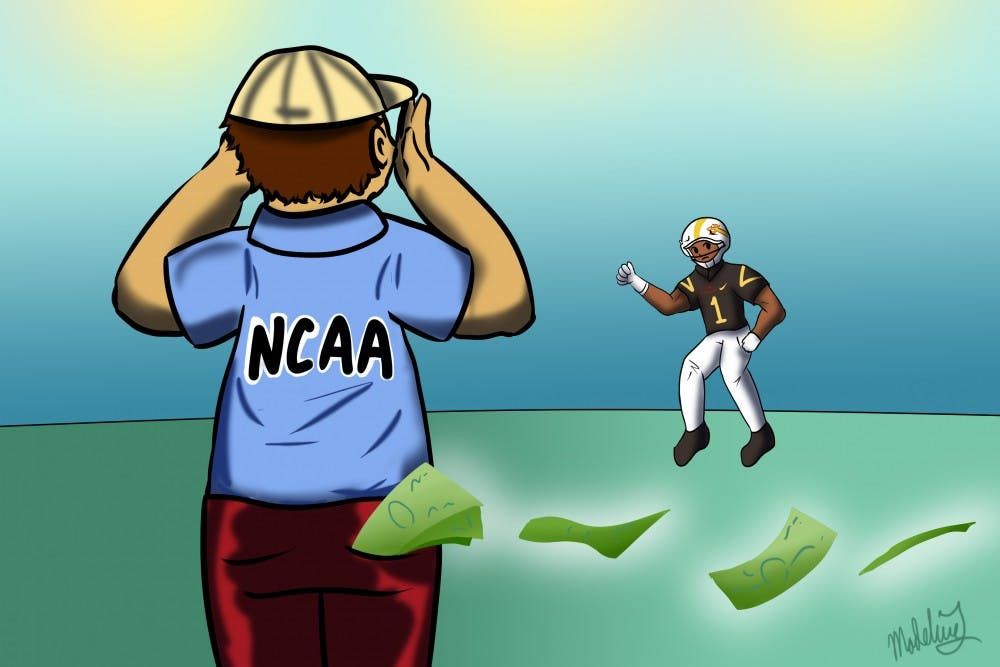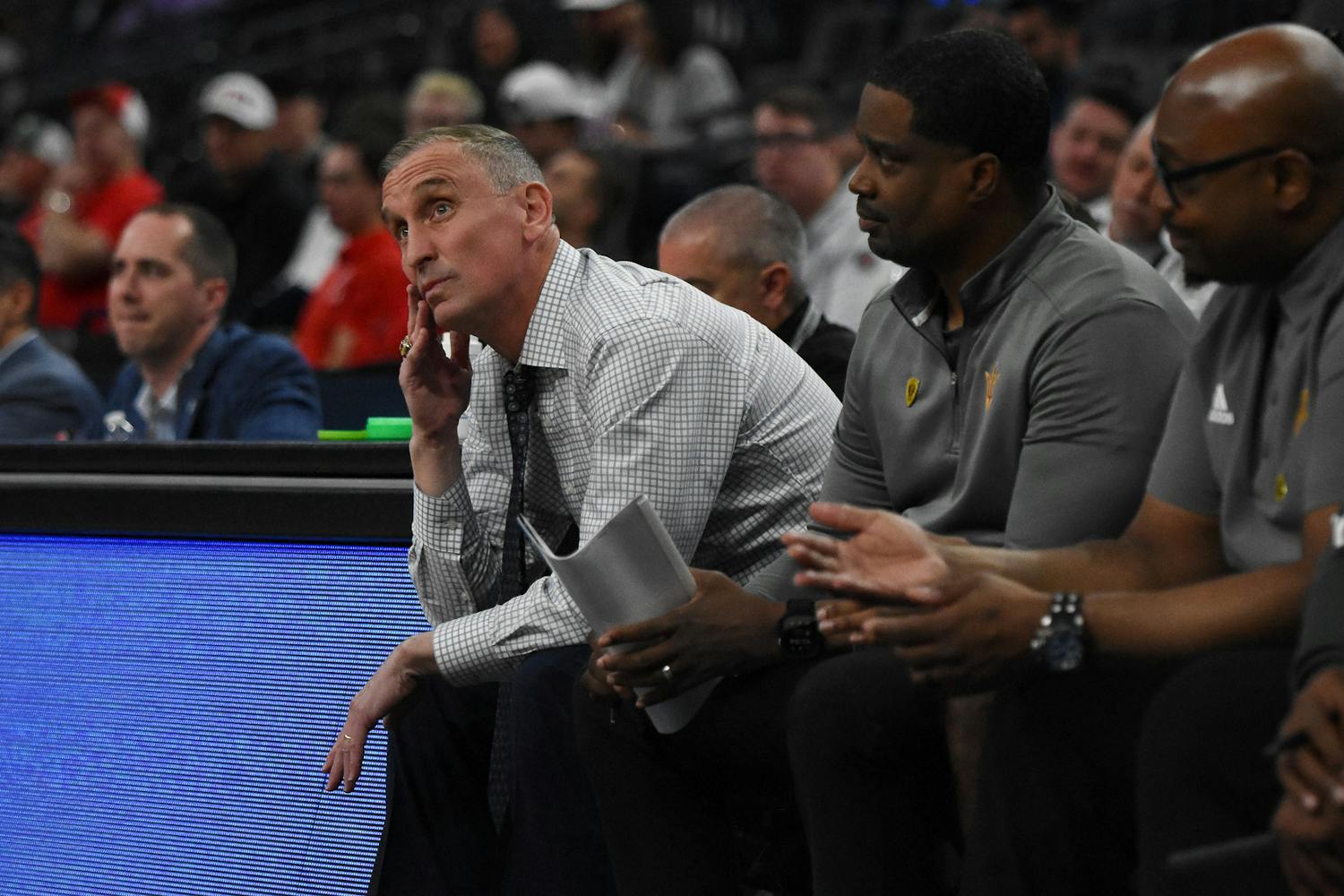Student-athletes in college are some of the most popular athletes in the country, but they do not get compensated accordingly. College athletes deserve compensation for the work and time they dedicate to their universities' athletic programs.
College athletics, especially football and men’s basketball, bring in millions of dollars in revenue for their respective schools and the NCAA, but that money does not find its way back to the players.
Football dominates network television on Saturdays throughout the fall and winter, and March Madness is one of the biggest events for any sport, collegiate or professional.
The NCAA rakes in gobs of money each year from various television contracts, championships and investments. In 2011-12 alone the NCAA made $871.6 million.
To put it into perspective, ASU’s head football coach Todd Graham’s yearly salary, is $3.2 million.
While Graham certainly plays a vital role in ASU football’s success, he would not be able to do his job without his players.
Even though many collegiate athletes are granted scholarships, they are still required to devote countless hours to their respective sports, which makes it challenging to focus on school requirements or hold a supplemental job.
For ASU, specifically, the average cost of attending the university and living in Tempe ranges from about $28,491 to $45,071 depending on whether the student is a resident or not.
Getting money to cover those living costs is great, but players deserve to be compensated for their on-field performances, even though it could be difficult to determine how the NCAA and universities should, or even could, go about it.
Being a college athlete is a full-time job, and the players should be treated as full-time employees.
However, compensating the players could require a complicated transition in the world of college athletics.
“I get mixed feelings about (athletes being paid),” Malcolm Lemmons, entrepreneur, speaker and former college athlete, said. “I understand it from the NCAA’s side of it and how challenging it might be to do. I think a lot of people overlook that. I’m a little torn on it.”
Endorsements through third-party organizations are ways athletes would be able to earn money. Offering a base salary or paying them based on the money the school, or even each individual sport, makes could pose more problems than solutions.
“Schools obviously bring in different revenue streams,” Lemmons said. “ASU would bring in a lot more money than a smaller school. There’s a ton of things you have to bring into consideration. If a player on the ASU basketball team is a starter, why would he receive the same compensation as someone on the bench?”
There is no easy solution to paying athletes. Some schools may want to pay them while others may not, but there should not be an over-arching rule restricting every university.
Schools wanting to compensate their players in different ways would not be the only potential issue. Handing athletes more money could take away from the purity of the sports.
“It would take away that passion and drive to get to the next level,” Lemmons said. “It’s understated that once you get to the pro level, it’s all about money. It takes away that competitive nature of college athletics people love.”
College sports have a way of uniting fans of all ages, and people pay exorbitant amounts of money each year to watch student-athletes compete.
While there may be obstacles to paying athletes, something needs to be done. Considering how much these athletes devote to their schools, they deserve fair compensation. Players put their bodies on the line to entertain millions of people, but they do so without any financial payoff.
It is time for that to change.
Reach the columnist at Steven.Slobodzian@asu.edu or follow @PSlobodzianASU on Twitter.
Like The State Press on Facebook and follow @statepress on Twitter.
Editor’s note: The opinions presented in this column are the author’s and do not imply any endorsement from The State Press or its editors.
Want to join the conversation? Send an email to opiniondesk.statepress@gmail.com. Keep letters under 500 words and be sure to include your university affiliation. Anonymity will not be granted.




